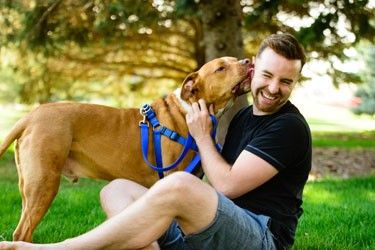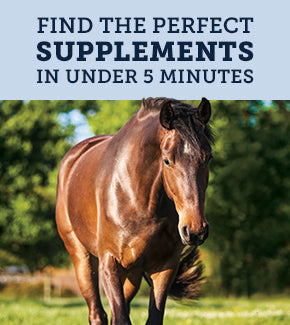If you live by water or a fish pond then it might make sense why your dog may have a fishy smell about him. However, since most of us don’t let our dogs play in a fish pond, why is it that they still have a fishy smell about them? Well, lets think… Has your dog gotten into any fish oil or fish products lately? If the answer is no, then there is something else that might be going on inside your dog. There is a chance that your dog may be suffering from a blocked or full anal sac(s).
Why does my dog smell like fish?
A common reason is your dog might be suffering from an infected or blocked anal sac gland. These glands, contain a smelly, oily fluid inside them. If the anal sac(s) are not working properly, the fluid builds up inside these glands and can lead to a foul smelling odor coming from your dog.
A common reason is your dog might be suffering from an infected or blocked anal sac gland. These glands, contain a smelly, oily fluid inside them. If the anal sac(s) are not working properly, the fluid builds up inside these glands and can lead to a foul-smelling odor coming from your dog.
What are anal sac glands on dogs?
Although commonly called anal glands, they are technically not glandular in structure. Anal Sacs are two small sacs located on either side of the anus between the internal and external anal sphincter muscles. (We will spare you a picture, but you can Google it) There are a few functions that the anal sac performs in dogs. It is also known as the scent gland and is what your dog uses to mark his territory or to identify other dogs that he may know. Healthy anal sacs will naturally empty on their own when the dog marks his territory or has a bowel movement. There are times, however, that they will not empty like they are supposed to and will become full of fluid.
What causes a dog's anal sac(s) to become full?
As mentioned above, when a dog defecates, it helps in emptying the anal sac of the dog. The catch is that your dog has to have a firm stool to put enough pressure on the sac for it to empty properly. If your dog has been experiencing soft, watery stools or diarrhea then chances are that not enough pressure is being put on the sac to be properly emptied; which can lead to getting too full. There are other things that might cause a full anal sac, but soft stools are a common cause.
Another sign to look for

A fishy smell may not be the only sign that your dog has a full anal sac(s). Another sign that you may observe, is your dog dragging his rear end across the ground. We have all seen it before and have probably gotten a good laugh from it. Even though this can be funny to see, it also might be a sign that your dog is suffering from a blocked anal sac and is experiencing discomfort.
How to know if my dog's anal sac glands are blocked
Here are some common signs to look for to see if your dog might be suffering from a blocked anal sac gland.
- A foul odor coming from your dog
- The famous dogie butt scooting
- Red swelling in the anal area
- Dog nipping at the anal area
- Sitting uncomfortably
Are blocked anal gland sacs in dogs dangerous?
A full anal sac(s) can cause physical discomfort in your dog causing him to act out of character. It may cause physical harm to your dog as he scratches and bites his hind end to try and relieve the pressure. It can also cause emotional damage like fear and stress in your dog as they try to understand what is going on. If a full anal sac is a reoccurring event and left untreated it could lead to an infection in your dog. If you notice blood or puss mixed in with your dog’s fecal matter, please consult with your Veterinarian.
What can be done for a dog’s blocked anal gland(s)
If you notice that your dog gives off a strong fishy smell and you are worried that it might be due to full anal sacs, don’t panic. There are steps that can be taken to help your dog have healthy anal glands.
Proper diet and exercise for your dog

As mentioned earlier, a healthy bowel movement can go a long way in helping your dog’s anal glands perform properly. A healthy dog’s stool requires two things in order to drain the gland properly; volume and firmness.
If your dog’s stool is constantly watery then not enough pressure is being placed on the anal gland to properly drain. The same thing goes with the volume or size of the stool as well. If the stool is firm but lacks size, then not enough pressure is being placed on the gland to empty properly. It takes size and firmness to properly drain the anal glands.
Proper exercise, hydration, and a good healthy diet is key. Consider giving your dog more fiber in its diet which will lead to more normal and healthy bowel movements. Another natural approach might be herbal remedies like our #30 Digestive Support. Herbal products may be a more stress-free, less invasive alternative for your furry companion. A more natural raw diet might also help your dog to have a normal bowel movement.
Treating a dog's allergies to prevent anal gland infections
If your dog gets plenty of exercises, a proper diet, and has a healthy bowel movement, but still has a blocked anal gland, then you might want to consider allergies.
You are probably thinking, how do allergies cause my dog to have a blocked anal gland? Allergies are an overreaction of the immune system. The immune system releases histamines which cause swelling and inflammation.
In humans, this swelling can cause red, dry eyes. This happens because the swelling and inflammation block the ducts that keep the eyes lubricated.
Now getting back to your dog. The swelling and inflammation caused by allergies can cause your dogs anal ducts to become blocked and inflamed. Once they are block they no longer work properly which can lead to anal gland issues in your dog.
At the very least, allergies will cause your dog to itch or feel very uncomfortable. One possible place that your dog will try to itch is his rear. Your dog will naturally try to relieve itself of the itching. They will bite and nip at their rear-ends to try and find comfort.
Constant nipping and biting might lead to irritation and damage of the anal glands. Which once again leads to a blocked anal gland in your dog.
If your dog does suffer from a blocked anal gland, we highly encourage you to see if your dog might be suffering from allergies. If they are then you should treat the allergies. A natural approach might be herbal remedies like our #34 Al-R-G Support. Remember a blocked anal gland is usually a symptom of something greater that is happening with your dog.
Contact your veterinarian

You can contact your veterinarian who will perform a procedure to empty the glands. Most likely they will express the anal gland. Meaning they manually squeeze the gland to remove the fluid.
Although this procedure will work in emptying the gland, it does not solve what caused the gland to become full in the first place. Remember if everything is working properly, then the anal sac should empty on its own. Most likely this procedure will have to be repeated until the underlying issue is identified and resolved.
If your dog has a chronic anal gland infection, then your vet might surgically remove the gland. It is up to you, if you want to put your dog through that or not. We would suggest ruling out all other options before making this decision.
Why does my dog’s breath smell like fish?
Sometimes the fishy smell that is coming from your dog is not coming from their anus but from the dog’s mouth. If this is the case for you then we have listed some reasons that might be causing your dog to have fishy breath.
Licking and Biting Might Be The Cause Of Your Dog’s Fish Breath
A blocked anus gland can still be the cause of your dog’s breath smelling like fish. Maybe not directly but in an indirect way. A blocked anal gland can cause discomfort in your dog.
As a natural response the dog will begin biting and licking their rear end to try and relieve the discomfort they are filling. As they do this, it might cause some of the fluid in the anal sac to be released onto the dog’s tongue or inside its mouth. If this fluid gets inside the dog’s mouth, it can be the source of what is causing the dog’s breath to have a fishy smell about it.
What can be done for fish breath in my dog?
If licking and biting is the cause of your dog’s fishy breath, then the best course of action would be to treat the blocked anal gland. Once the discomfort is gone, that your dog should stop licking and biting their rear end.
Is your dog taking fish oil?
Fish oil can be beneficial for your dog, but the fishy smell that comes from consuming fish oil can linger around for quite a while. A dog just like a human can burp. If your dog burps after taking fish oil, you will notice a fishy smell coming from their breath. As an owner, usually you would know if your dog is taking fish oil’s or not.
Good dog oral hygiene may help to prevent fish breath

Good oral hygiene can help your dog with his bad fishy breath. However, good hygiene will only go so far. Even the best hygiene might not stop the fish smell that comes from a good belch.
A dog’s diet can cause fish breath
What you feed your dog can cause your dog to have breath that smells a little fishy. You might be feeding your dog, dog food that uses fish product in it. Check the labels of your dog food. If one of the ingredients is omega-3 or omega-6 then there is a chance that you have some type of fish product in your dog food.
Salmon and whitefish can be used in commercially prepared dog food. Salmon and whitefish are a great source for omega-3 and omega-6, that is why they are used in dog food.
Some other ingredients that you might want to look for is fish oil, fishmeal, Docosahexaenoic acid and eicosapentaenoic acid. These ingredients may also be the cause of a dog’s breath smelling like fish.
How to fix a dog's diet problems
If you want to track down the source of your dog’s breath problems and notice that the dog food does contain fish ingredients, then you could switch dog foods. However, keep in mind that study shows that omega 3 and 6 helps support healthy cell growth. Also, some dogs have food allergy to animal protein, and a fish base protein diet may be more suitable for them. So before you make the switch permanent, do your research and then go from there.
A dog’s liver and kidney troubles
If you have not found the source of your dog’s fishy breath, then another condition that could be the cause of it is kidney and liver failure. It has been rumored the kidney and liver failure can cause bad breath that does have a fishy smell to it. It is impossible for us to determine that for you and we would advise you to take your dog to the vet if you have any concerns.
A dog’s fecal matter might be the cause of fishy breath
Another possibility is that everything might be just fine with your dog. When your dog defecates, it might be putting enough pressure on the anal sacs which causes it to be released without any issues. So if that is the case, then what is causing the fishy breath. There are some dogs that like to turn around and eat their own fecal matter. If this is the case with your dog, then it might explain where the fish smell is coming from. When they eat their own fecal matter they are also partaking of the anal sac fluid as well, which can cause your dog’s breath to have an unpleasant smell about it.
Conclusion

As you can see, there can be many reasons that might explain why your dog smells like fish. We named some of the common reasons here, but I am sure that we did not name them all. This article is here to help inform you and hopefully help give you peace of mind when it comes to your furry companion.







